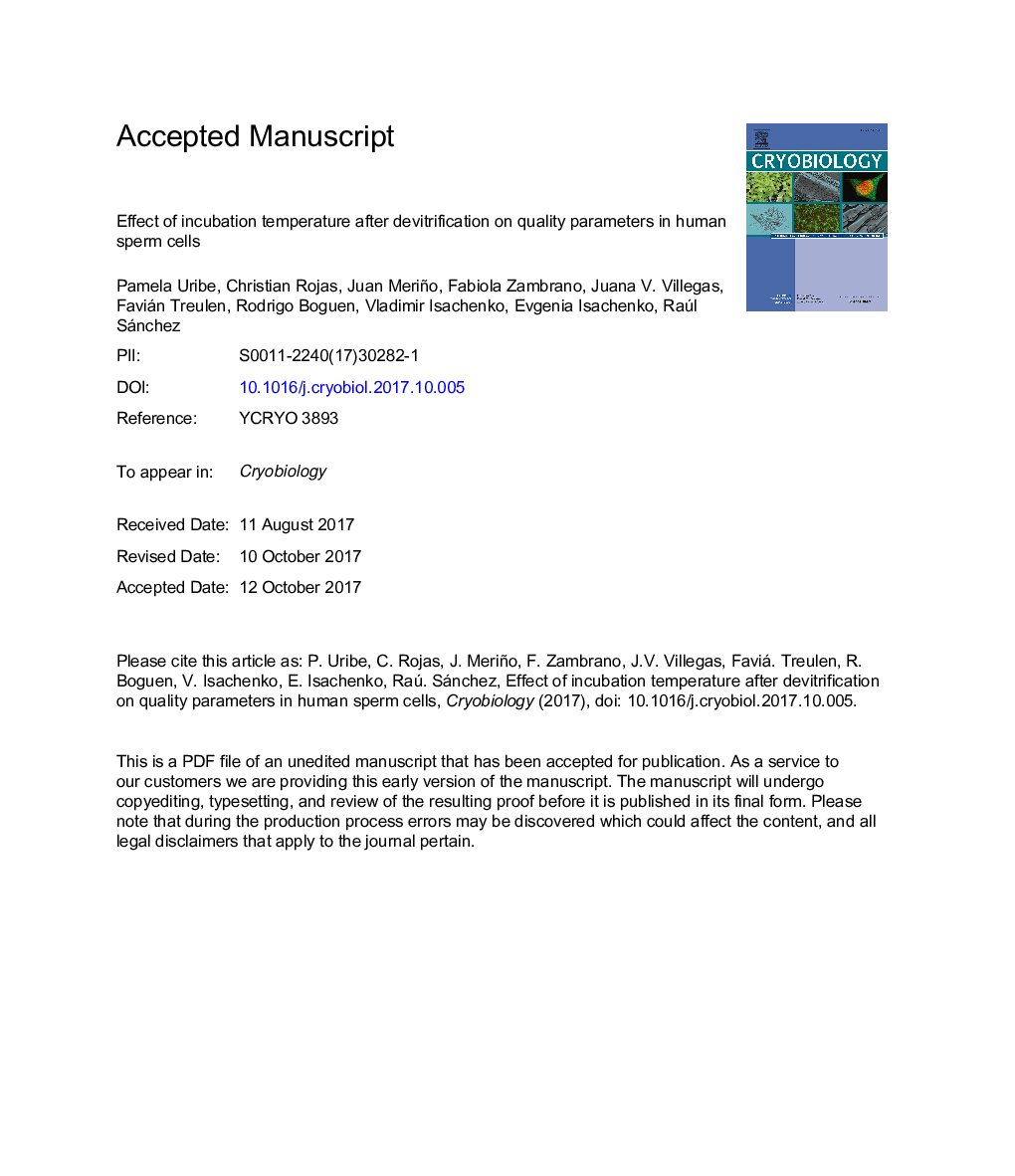| Article ID | Journal | Published Year | Pages | File Type |
|---|---|---|---|---|
| 8464438 | Cryobiology | 2017 | 15 Pages |
Abstract
Sperm cryopreservation is common in assisted reproduction laboratories, providing a therapeutic option for several clinical conditions. This process has been optimized; however, the effect of post-thaw incubation temperature has been poorly studied. This work analyzed the effect of incubation temperature after devitrification on human sperm quality. Spermatozoa from normozoospermic donors were cryopreserved by vitrification. After devitrification, the spermatozoa were separated into two aliquots: (i) incubated at room temperature (RT, 22-25 °C) and (ii) incubated at 37 °C. Reactive oxygen species (ROS), viability, mitochondrial membrane potential (ÎΨM), phosphatidylserine externalization and motility were analyzed immediately after devitrification (control) and after 2, 4 and 6 h. Spermatozoa incubated at RT showed a conserved viability and ÎΨM compared to the control, while the incubation at 37 °C promoted a decrease in these parameters. The ROS levels were increased at both incubation conditions. The progressive motility was decreased in all experimental groups and the decrease was more pronounced under incubation at RT. No increase in phosphatidylserine externalization was observed. In conclusion, prior to use in assisted reproduction procedures, devitrified spermatozoa at RT conserve a better viability and ÎΨM than at 37 °C.
Related Topics
Life Sciences
Agricultural and Biological Sciences
Agricultural and Biological Sciences (General)
Authors
Pamela Uribe, Christian Rojas, Juan Meriño, Fabiola Zambrano, Juana V. Villegas, Favián Treulen, Rodrigo Boguen, Vladimir Isachenko, Evgenia Isachenko, Raúl Sánchez,
